Premium Only Content
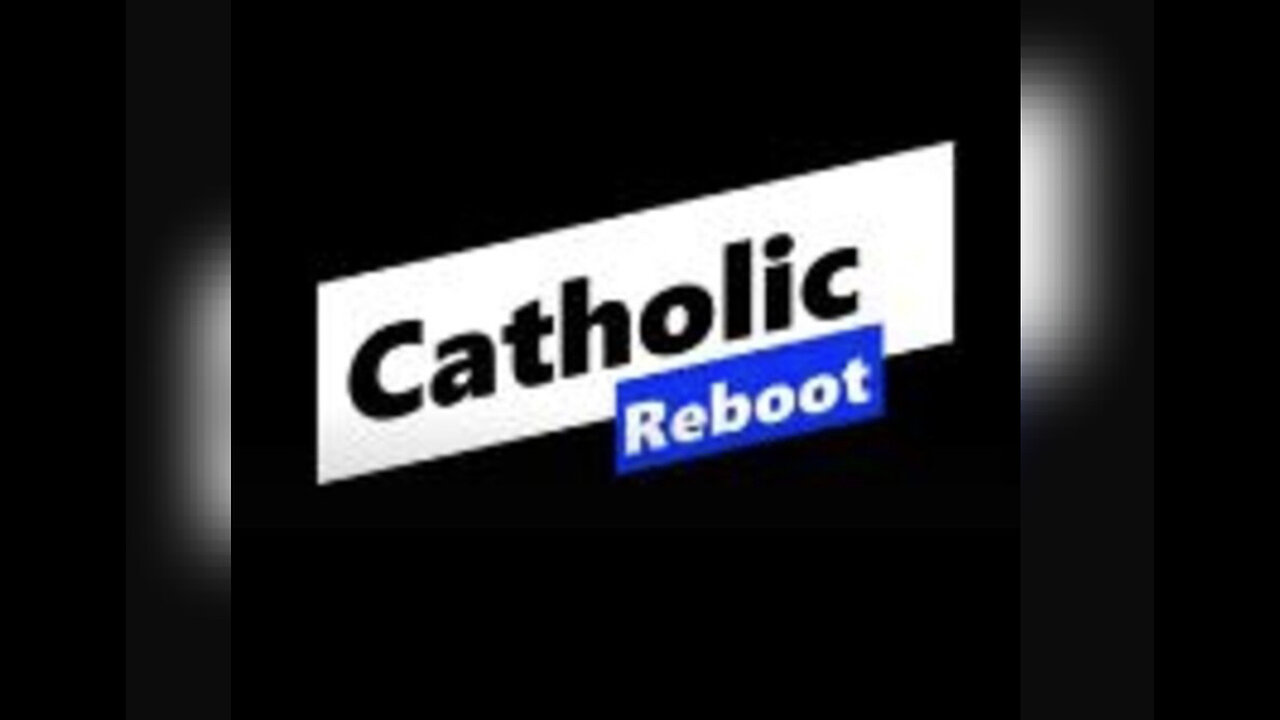
Episode 1279 The Bible - Book of Ruth
Here is a summary of the Book of Ruth based on the Vulgate Bible:
The Book of Ruth tells the story of a Moabite woman named Ruth and her journey from widowhood to becoming an ancestor of King David. The story takes place during the time of the judges in Israel.
The book begins with a man named Elimelech and Naomi were residents of Bethlehem, a town in the land of Judah. During their time, a severe famine struck the region, causing a shortage of food and resources. In search of sustenance and survival, Elimelech made the difficult decision to leave Bethlehem with his wife Naomi and their two sons, Mahlon and Chilion.
They journeyed to the land of Moab, a neighboring region across the Dead Sea. Moab was inhabited by the Moabites, a people descended from Lot, the nephew of Abraham. Elimelech sought refuge and provisions for his family in Moab, hoping to find a better life amidst the famine.
In Moab, Mahlon and Chilion, the sons of Elimelech and Naomi, took Moabite women as their wives. Mahlon married Ruth, and Chilion married Orpah. These marriages between the Israelite sons and Moabite women were not uncommon during that time.
Sadly, Elimelech (ALEM-A-LEK) dies, and his sons also pass away after about ten years, leaving Naomi and her daughters-in-law as widows. Naomi decides to return to Bethlehem upon hearing that the famine has ended.
She urges her daughters-in-law to return to their families and find new husbands, but Ruth insists on staying with Naomi. Ruth famously declares her loyalty to Naomi, saying, "Whither thou goest, I will go; and where thou lodgest, I will lodge: thy people shall be my people, and thy God my God."
Upon arriving in Bethlehem, Ruth begins gleaning in the fields to provide for Naomi and herself. By divine providence, she ends up in the field of Boaz, a relative of Elimelech (ALEM-A-LEK). Boaz shows kindness to Ruth and allows her to continue gleaning in his fields (collecting things bit by bit). Naomi realizes that Boaz is a potential redeemer, a kinsman who could marry Ruth and continue the family line.
Naomi instructs Ruth to visit Boaz at night on the threshing floor, where she uncovers his feet and lies down. At midnight, Boaz awakens and finds a woman lying at his feet. Startled, he asks, "Who art thou?"
Ruth replies, "I am Ruth thine handmaid: spread therefore thy skirt over thine handmaid; for thou art a near kinsman." By saying this, Ruth is essentially proposing marriage to Boaz and asking him to fulfill the role of the redeemer by marrying her and preserving her late husband's family line.
Boaz acknowledges Ruth's kindness and virtue, stating that she could have sought a younger man as a husband. He praises her for her loyalty to Naomi and her willingness to follow the customs of Israel. Boaz assures Ruth that he will do whatever is necessary to fulfill her request, but there is a potential obstacle—a closer relative who has the first right to redeem Naomi's land and marry Ruth.
To resolve this matter, Boaz instructs Ruth to wait until morning and assures her that he will speak to the closer relative. If the relative agrees to fulfill the duty, Boaz will step aside, but if not, Boaz will take on the responsibility of redeeming Naomi's land and marrying Ruth.
Ruth obeys Boaz's instructions and remains at his feet until morning. Before she leaves, Boaz provides her with six measures of barley as a gift to take back to Naomi. Ruth returns to Naomi and explains all that had transpired between her and Boaz during the night.
Ruth's visit to Boaz at the threshing floor demonstrates her faithfulness, courage, and initiative. It also highlights Boaz's integrity and willingness to fulfill his role as a redeemer. Their encounter sets the stage for the resolution of the story, leading to their eventual marriage and the continuation of the family line that leads to King David.
So before going on further what do we know about Boaz?
Lineage and Background: Boaz is introduced as a man of noble lineage, because he belongs to the family of Elimelech and Naomi. He is described as a "mighty man of wealth" and a prominent figure in Bethlehem. Boaz's ancestry traces back to Perez, the son of Judah, making him a member of the tribe of Judah.
Virtues and Reputation: Boaz is portrayed as a man of integrity, kindness, and righteousness. When he first encounters Ruth gleaning in his fields, he shows her favor and instructs his workers to protect and provide for her. Boaz praises Ruth for her loyalty to Naomi and her virtuous character, saying, "It hath fully been shown me, all that thou hast done unto thy mother-in-law since the death of thine husband."
Role as a Redeemer: Boaz plays a crucial role as the potential redeemer in the story. As a kinsman of Elimelech, he possesses the right to redeem the land and marry Ruth, thus preserving the family lineage. When Naomi learns about Boaz's status as a redeemer, she encourages Ruth to seek his favor and protection. Boaz willingly takes on the responsibility, but he ensures that the matter is dealt with according to the proper legal procedures, as he discovers there is a closer relative who has the first right of redemption.
So let me provide a little more detail.
In chapter 3, we see Boaz learning about the existence of a closer relative who has the first right to redeem Naomi's land and marry Ruth.
After Ruth's visit to Boaz at the threshing floor, Boaz recognizes the need to address the matter of redemption properly. In the morning, Boaz sends Ruth back to Naomi with six measures of barley as a sign of his commitment and assurance.
Boaz then heads to the city gate, the place where legal and business matters were often conducted in biblical times. He waits for the closer relative, the one who holds the first right of redemption, to pass by. Boaz addresses him respectfully, saying, "Ho, such a one! Turn aside, sit down here."
Boaz gathers ten elders of the city as witnesses and explains the situation to the relative. He informs the relative that Naomi is selling a parcel of land that belonged to their kinsman Elimelech, and the land comes with the duty of redeeming it. Boaz informs the relative that if he is willing to redeem the land, he must do so, but if not, Boaz will step in as the next in line.
The relative expresses interest in redeeming the land, but then Boaz adds that along with the land comes the responsibility of marrying Ruth, the Moabite widow of Mahlon, the deceased son of Elimelech. This adds a significant dimension to the transaction, as the relative realizes that marrying Ruth would affect his own inheritance and family line.
To avoid jeopardizing his own inheritance, the relative declines the opportunity to redeem the land and marry Ruth. He says to Boaz, "I cannot redeem it for myself, lest I mar mine own inheritance: redeem thou my right to thyself, for I cannot redeem it."
With the relative's decision, Boaz becomes the designated redeemer. The transaction is made official as the relative takes off his sandal, a symbolic act of relinquishing his right of redemption. This act signifies that he has given up his claim to the land and the responsibility of marrying Ruth.
Boaz then announces to the witnesses and the people present that he has acquired the right of redemption and intends to marry Ruth. The people bless Boaz, saying, "The Lord make the woman that is come into thine house like Rachel and like Leah, which two did build the house of Israel."
With the matter resolved, Boaz and Ruth are free to proceed with their marriage. Their union ultimately leads to the birth of their son Obed, who becomes the grandfather of King David.
The book of Ruth concludes by listing the genealogy from Perez, the son of Judah, down to David.
Perez begot Hezron,
Hezron begot Ram,
Ram begot Amminadab,
Amminadab begot Nahshon,
Nahshon begot Salmon,
Salmon begot Boaz,
Boaz begot Obed,
Obed begot Jesse,
and Jesse begot David.
The Book of Ruth is a beautiful narrative that showcases loyalty, kindness, and God's providential care. It highlights the role of Ruth, a foreigner, in the lineage of King David, and ultimately, in the lineage of Jesus Christ.
-
 20:14
20:14
GritsGG
12 hours agoHackers vs Win Squad! Let's Get it Done!
1.07K -
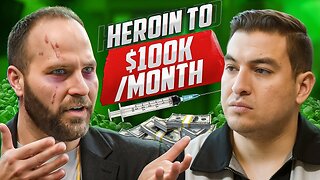 59:26
59:26
Omar Elattar
9 months agoFrom HEROIN To CEO: How I Overcame Addiction & Built A $120k/Month Business
1.1K -
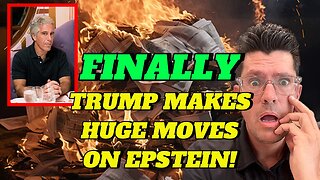 26:18
26:18
Stephen Gardner
9 hours ago🔥YES! Trump makes TWO HUGE moves on Epstein!!
19.4K48 -
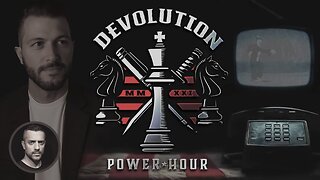 1:58:25
1:58:25
Badlands Media
13 hours agoDevolution Power Hour Ep. 373: Narrative Whiplash, Border Theater, and the Trump Time Bomb
79.5K35 -
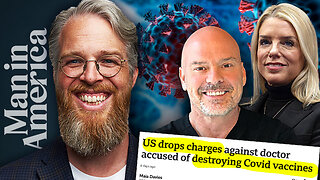 1:01:56
1:01:56
Man in America
14 hours agoVICTORY! DOJ Drops All Charges Against Doctor Who Defied COVID Tyranny w/ Dr. Kirk Moore
49.6K34 -
 7:30:55
7:30:55
RalliedLIVE
11 hours ago $15.93 earnedHIGH OCTANE WARZONE SOLOS ALL DAY
82.2K3 -
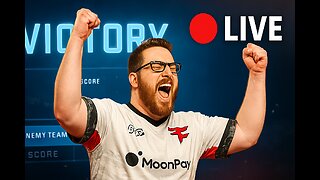 5:03:19
5:03:19
Spartan
6 hours agoSpartan - Pro Halo Player for OMiT | Ranked
23.7K1 -
 1:57:36
1:57:36
DLDAfterDark
5 hours ago $5.11 earnedGuns Aren't Political - The Gun Owners Leadership Summit AKA G.O.A.L.S in Aug!
24.3K2 -
 1:57:36
1:57:36
BlackDiamondGunsandGear
6 hours agoAfter Hours Armory LIVE w/ DLD After Dark and Tiberious Gib
18.3K -
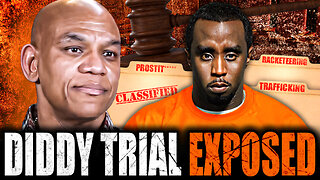 1:15:42
1:15:42
The Connect: With Johnny Mitchell
1 day ago $8.22 earnedHow Did This Happen? Male Escort Who Testified Against Diddy Exposes LIES About Government's Case
36.8K7